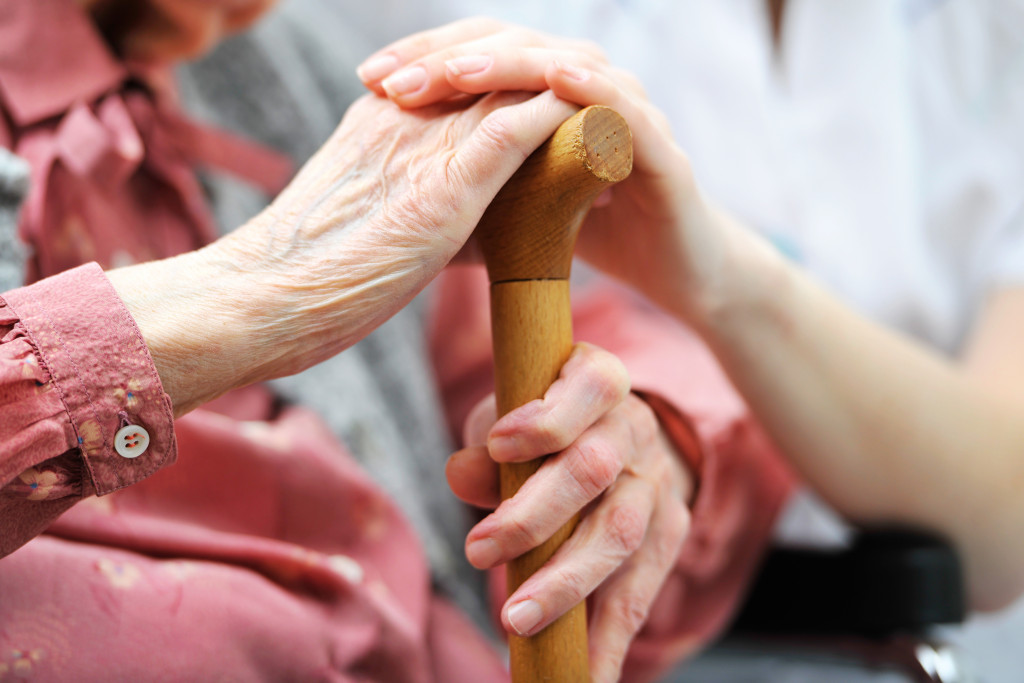- Embrace the present moment and make meaningful conversations to create lasting memories with your loved one in end-of-life care.
- Enhance the quality of life by promoting physical comfort and pain management, as well as emotional well-being.
- Incorporate holistic approaches such as music therapy or art therapy for nonverbal adults.
- Home hospice allows families to care for their loved one’s in familiar surroundings.
- Tailor care plans to align with individual needs and preferences while collaborating with a multidisciplinary team of healthcare professionals.
Caring for adults in end-of-life care can be a challenging and emotional experience for patients and their caregivers. While the primary focus is on providing physical comfort, it’s essential to recognize the importance of maximizing your limited time with your loved one.
When someone is in end-of-life care, time becomes a precious commodity. It’s essential to approach this time with intention, making the most of every moment.
Maximizing your time with your loved one allows you to create lasting memories, strengthen relationships, and provide emotional support. Engaging in activities and conversations that are meaningful and fulfilling can help your loved one make the most of their remaining months, weeks, or days.
This blog post will discuss making the most of your time with adults in end-of-life care.
Embracing the Present Moment
The first step towards making the most of the time spent with adults in end-of-life care is to focus on the present. Avoid dwelling on the past or worrying about the future.
Take each day as it comes and enjoy every moment spent with them. Celebrate their lives and create memories that will last forever.
Fostering Open Communication and Meaningful Conversations
Communication is a crucial aspect of caring for adults in end-of-life care. Fostering open dialogue and meaningful conversations with your loved one helps create a sense of closeness and connection.
It provides an opportunity to connect emotionally and explore their values, beliefs, and experiences.
Creating a Comfortable and Peaceful Environment
A comfortable and peaceful environment is vital for adults in end-of-life care. Caregivers should strive to create a serene and relaxing atmosphere for their loved ones.
Ensure that the room is well-lit, ventilated, and free from clutter. Use soothing colors, bring in fresh flowers, and play soothing music to promote a relaxing environment.
Encouraging Personal Reflection and Life Review
End-of-life care offers an opportunity for personal reflection and life review. Encourage your loved one to reflect on their life, look at their achievements, and express regrets.
You could also create a memory box with meaningful items from their life, such as photos, letters, and keepsakes. This can be an excellent way to preserve cherished memories and help your loved one find closure.
Enhancing Quality of Life
One of the most important aspects of caring for adults in end-of-life care is prioritizing quality of life. This can include:
Addressing Physical Comfort and Pain Management
Addressing physical comfort and pain management is essential when caring for adults in end-of-life care.
It includes providing soft blankets and pillows, using pain medications or other forms of pain relief as needed, and minimizing any unnecessary physical stress or discomfort. Comfort measures such as warm baths or massage can also be helpful.
Supporting Emotional Well-Being and Providing Counseling
End-of-life care can be emotionally challenging for the adult and their loved ones. Providing emotional support, such as frequent check-ins or counseling sessions with a trained professional or social worker, is essential. Connecting with spiritual or religious resources can also be helpful for some individuals.
Incorporating Holistic Approaches
Holistic approaches such as music therapy or art therapy can benefit adults in end-of-life care. These evidence-based practices have been shown to reduce stress, improve mood and provide a sense of comfort or stress relief.
They can be particularly helpful for nonverbal adults with difficulty expressing themselves or communicating with others.

Home Hospice: Care in the Comfort of Home
End-of-life care can be sensitive, leading to various uncertainties and fears. However, home hospice may help alleviate some of these concerns.
For the patient, home hospice can offer comfort, privacy, and familiarity with their surroundings.
Additionally, it can reduce the stress of frequent hospital visits and provide greater control over their care plan. For the family, caring for their loved one in their accustomed environment may give them a sense of comfort.
Home hospice provides families a unique opportunity to spend more quality time with their loved ones, create lasting memories, and ultimately make a peaceful transition for them at the end of life.
Setting up a Supportive and Nurturing Environment at Home
Creating a nurturing environment at home for an adult in end-of-life care is essential. The physical environment should be comfortable and supportive, with necessary medical equipment and supplies at hand.
The emotional environment should be equally supportive and nurturing, with caregivers and visitors who offer comfort, empathy, and encouragement.
Tailoring Care Plans to Align With Individual Needs and Preferences
The care plan for the individual in end-of-life care should be tailored to their unique needs and preferences. Caregivers must communicate consistently with healthcare professionals to ensure the patient’s needs are met and their expectations are understood.
This communication ensures that caregivers maintain consistent care while creating a supportive, nurturing, and empowering environment.
Collaborating With a Multidisciplinary Team of Healthcare Professionals
Home hospice care brings together various healthcare professionals, including doctors, nurses, social workers, and spiritual counselors. A multidisciplinary approach ensures that the individual’s physical, emotional, and spiritual needs are adequately met.

End-of-life care is a precious time that requires the utmost attention from caregivers.
By embracing the present moment, fostering open communication, creating a comfortable and peaceful environment, encouraging personal reflection and life review, and enhancing the quality of life, caregivers can make the most of their time with their loved ones and promote a sense of fulfillment.
As challenging as it may be, providing care for adults in end-of-life care is an act of love and compassion. Let us cherish every moment spent with them.

